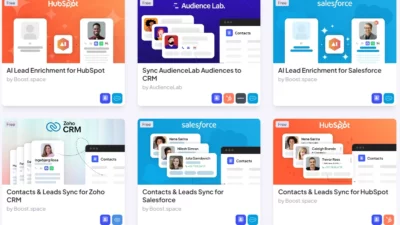Last Updated on January 22, 2026 by Lexy Summer
In a world where software systems need to evolve at the speed of customer expectations, your cloud deployment model can either be a powerful enabler – or a silent bottleneck. Whether you’re running large-scale test suites, mission-critical services, or simple regression testing pipelines, the architecture behind your deployment plays a massive role in how things scale, secure, and perform.
This blog digs into the critical differences between shared and private cloud deployments, unpacking what they really mean for you, especially if you’re a tester, developer, or DevOps engineer trying to strike the right balance between flexibility and control. Along the way, we’ll explore where AI-powered platforms like LambdaTest fit into this matrix – and how they’re changing the game for software testing teams.
Why Cloud Deployment Models Even Matter
Choosing a cloud deployment model isn’t about flipping a coin. It’s a strategic decision that affects not just infrastructure costs but also how reliably and quickly you can push updates, run tests, manage data compliance, or isolate sensitive environments.
The pandemic-induced remote work shift and the rise of decentralized developer teams have accelerated cloud adoption. Today, hybrid work environments and globally distributed testing teams are the norm. In this setting, your deployment model needs to support high performance, security, and collaboration, all without breaking the bank.
And that’s where understanding the nuances of shared vs. private cloud comes in.
Shared Cloud: When Cost-Effective Meets Convenient
Shared cloud refers to a multi-tenant cloud environment where several organizations share computing resources provided by a public cloud service provider. Think AWS, Azure, GCP – these platforms are built to scale with massive user bases.
Here’s what makes the shared cloud so appealing:
Cost-Effectiveness
You only pay for what you use. That’s gold, especially for startups or growing teams trying to optimize budgets. Because the infrastructure costs are distributed across multiple tenants, the pricing becomes extremely competitive.
Rapid Scalability
Need to run a last-minute regression testing suite before a product launch? The shared cloud has your back. Resources are provisioned dynamically, making it easy to scale up (or down) based on demand.
Easy Setup
No need for lengthy procurement processes or dedicated infrastructure planning. You get pre-configured environments, integrations, and APIs almost instantly.
But Not Without Limitations…
While a shared cloud has its perks, it’s not always a silver bullet. Here’s why:
- Data security concerns can creep in, especially if you’re dealing with sensitive user data or operating in regulated sectors like finance or healthcare.
- Performance inconsistencies may arise due to noisy neighbors – other tenants consuming more than their fair share of resources.
- Limited customizability in some configurations. You can’t always install every proprietary tool or control hardware specifications.
Still, for test teams running non-critical workloads or those relying on automation-heavy cycles like regression testing, the shared model often delivers more than enough bang for the buck.
Private Cloud: For Control Freaks (And With Good Reason)
Private cloud, on the other hand, is a dedicated environment. You either host it on your own infrastructure or lease it from a vendor who isolates the environment just for your organization. It’s like owning your own house versus renting an apartment.
Here’s where private cloud shines:
Unmatched Security
With total control over access protocols, encryption, data residency, and firewall rules, private cloud is the go-to for organizations in tightly regulated industries or those who treat their data like Fort Knox.
Performance Consistency
No competition for compute power here. Dedicated resources mean stable performance for large builds, data-heavy regression testing pipelines, and simultaneous user sessions.
Customization and Compliance
Want to plug in custom DevOps tools? Configure niche python frameworks for specific testing scenarios? Deploy region-specific compliance rules? The private cloud lets you do all that – and more.
But Here’s the Trade-Off
- Higher cost of ownership. Not just infrastructure but also the people and tools to manage it.
- Longer setup time. Provisioning, configuring, and deploying services on private clouds is anything but plug-and-play.
- Scaling bottlenecks. Without elastic scaling, your team might hit capacity walls during high-volume test executions.
Regression Testing and Cloud Deployment: The Critical Link
You might be wondering, “What does cloud deployment have to do with regression testing?” The answer: everything.
Regression testing involves retesting software after changes to ensure existing features work as expected. While the logic seems simple, the execution is anything but.
- It’s resource-intensive: Automated test suites need compute power and bandwidth, especially when they scale.
- It’s time-sensitive: Regression testing usually happens under tight deadlines, typically just before a release freeze.
- It’s unpredictable: You might not always know when a last-minute bug fix or integration will trigger a fresh cycle of testing.
This is why your deployment model matters. A shared cloud might make sense if you need fast, flexible test environments. But if you’re testing sensitive enterprise apps with tight SLAs, a private cloud can offer the control and reliability your CI/CD pipeline demands.
Deep Dive: Use Case Comparison
Let’s break down a few real-world testing workflows to see how deployment models impact them:
Case 1: E-commerce Regression Testing at Scale
Imagine you’re testing a large e-commerce platform with 50+ microservices. Each service interacts with payment gateways, inventory systems, and customer databases. Here’s how each cloud type behaves:
- Shared Cloud: Scales well for automated testing across microservices using Selenium. Integrates easily with CI/CD pipelines.
- Private Cloud: Better for storing transactional data securely and ensuring test environments mimic production for accurate regression testing.
Case 2: Fintech App with Regulatory Compliance
A fintech company running weekly regression tests for a mobile banking app needs to follow strict data privacy laws.
- Shared Cloud: Might raise concerns around GDPR, PCI DSS, or RBI compliance.
- Private Cloud: Lets you configure encryption protocols, store data in specific regions, and add audit trails for every test session.
Case 3: Agile Startup Releasing Twice a Day
A fast-paced SaaS startup doesn’t have time (or money) to set up its own infrastructure.
- Shared Cloud: Perfect match. Run nightly regression suites, utilize containerized environments, and scale based on sprint schedules.
- Private Cloud: Probably overkill, unless security is non-negotiable.
Python Frameworks and Deployment Choice
Let’s zoom in a little further. If you’re working with python frameworks like PyTest, Robot Framework, or Behave, the cloud model you pick affects how you execute your test scripts.
- Shared cloud environments often come preloaded with popular python frameworks, allowing teams to plug-and-play their test suites.
- Private clouds, meanwhile, offer the flexibility to create custom environments. You can tune framework settings, control dependencies, and isolate test containers for more deterministic outcomes.
Also worth noting: Python’s growing ecosystem around AI and machine learning is adding another layer of complexity to test environments. Whether you’re validating ML model outputs or dealing with data-heavy frameworks like TensorFlow or Scikit-learn, your cloud setup must keep up with compute and memory demands.
Where LambdaTest Comes Into Play
When you need the best of both worlds – speed and control, scale and security – LambdaTest steps in like a trusted co-pilot.
LambdaTest is an AI Native test orchestration and execution platform that lets you run manual and automated tests at scale with over 5000+ real devices, browsers, and OS combinations. Whether you’re managing regression testing cycles for web apps, mobile apps, or anything in between, LambdaTest’s flexible infrastructure adapts to your needs.
Here’s why LambdaTest aligns well with both shared and private cloud deployment scenarios:
Instant Access to Environments : Need to run Selenium or Cypress tests across multiple browsers? LambdaTest provides you with cloud-based environments that mirror real-world conditions – on-demand, without local setup.
Hybrid Cloud Architecture : LambdaTest lets enterprise users choose between public cloud access and private, dedicated cloud instances – perfect for regulated industries or those needing data isolation.
Integrates With Your Favorite Tools : From Jenkins and GitHub Actions to popular python frameworks and CI/CD orchestrators, LambdaTest plugs right into your workflow, reducing overhead and enhancing automation efficiency.
Smart Test Execution : Its AI-driven parallelization engine cuts down test execution time dramatically – crucial for last-minute regression test cycles. You can run multiple tests concurrently without bottlenecks, even in complex private cloud setups.
Making the Right Choice: Key Questions to Ask
If you’re still on the fence about which model is right for you, consider the following:
- How sensitive is your test data?
If compliance is king, private cloud wins. - How frequently do you scale up/down your testing infrastructure?
Shared cloud is more elastic and cost-effective. - What’s your average regression testing workload?
For high-volume, frequent testing, a shared cloud offers agility. For stability and control, private takes the cake. - Are your developers and testers distributed across geographies?
Cloud-agnostic tools like LambdaTest can offer hybrid access to both shared and private infrastructures with geo-specific environments.
Trends Shaping the Future
Flexible deployment is no longer a luxury – it’s a necessity. With remote teams, continuous deployment cycles, and ever-evolving compliance frameworks, organizations are increasingly moving toward hybrid models.
Also, the rise of AI in testing, especially with self-healing test scripts and predictive analytics, demands a backend that can adapt and scale dynamically. Cloud vendors and platforms are responding by building out multi-cloud support, edge computing capabilities, and seamless infrastructure-as-code models.
Conclusion
Choosing between shared and private cloud deployments isn’t about picking the “best” option – it’s about choosing the right one for your use case.
- For agile, budget-conscious teams that rely heavily on fast, iterative regression testing: shared cloud might be the most practical choice.
- For large enterprises dealing with sensitive data, tight SLAs, or bespoke configurations built on top of powerful python frameworks: private cloud provides the control and stability you need.
And if you want to skip the hassle of infrastructure debates altogether, consider a testing platform like LambdaTest that adapts to your deployment strategy – so your team can focus on delivering high-quality software, not fighting servers.
Remember: the future belongs to those who can test smarter, deploy flexibly, and adapt quickly. Don’t just follow the cloud – own your cloud strategy.

Lexy Summer is a talented writer with a deep passion for the art of language and storytelling. With a background in editing and content creation, Lexy has honed her skills in crafting clear, engaging, and grammatically flawless writing.



